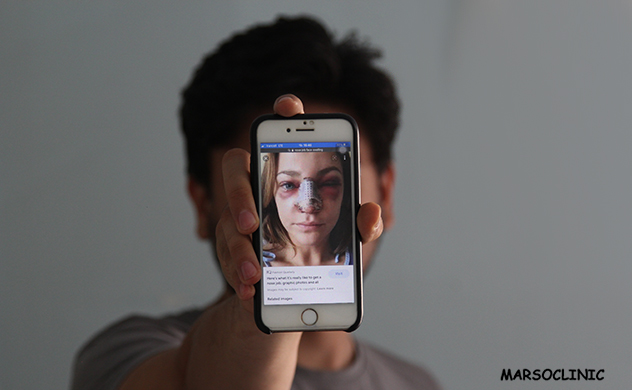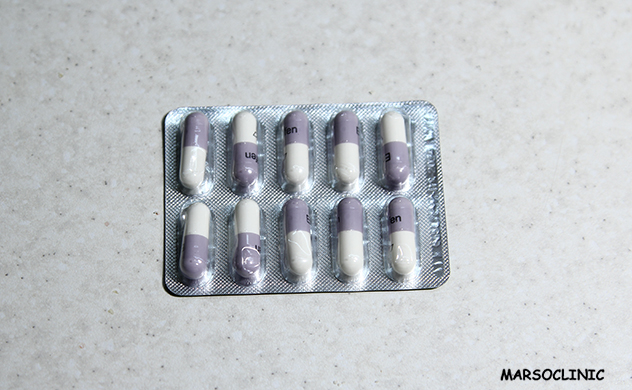how to get rid of facial swelling after oral surgery

If you have recently had rhinoplasty and your face is swollen and you want to get rid of your swollen face sooner.
If you have had cheek or lip surgery and are looking for a way to reduce the swelling of your face after surgery.
If the injection of filler on your cheeks, under your eyes or lips, is accompanied by painful swelling of your face and you are looking for a way to reduce swelling.
If the annoying swelling of your face is caused by tooth surgery, implants, etc. and bothers you.
You will read more:
It is normal for any surgery to be accompanied by a series of transient and temporary complications.
Why does facial swelling occur after surgery and facial manipulations?
Surgeons describe the cause of post-surgery facial swelling as intravenous fluid entering the extravascular space and spreading between facial tissues.
In other words, manipulation of facial tissues is probably associated with altered permeability of the vascular wall, which increases the leakage of blood fluid or plasma serum into the tissues and causes facial swelling.
Sometimes there is bleeding in the tissues during surgery that will cause your face to swell.
How to reduce the swelling of your face after surgery?
In many cases, facial swelling is unavoidable following surgery and even less invasive procedures such as gel or liposuction.
Your doctor and surgeon will provide you with the necessary tips to reduce the possibility of severe facial swelling. Following the tips before and after surgery can lead to less facial swelling.
Bilateral cooperation is essential to achieve the right outcome between you and your surgeon.
The most common transient complication after surgery and non-invasive procedures on the face is facial swelling and bruising.
In many serious cases, these complications are really unavoidable. Do not worry because these events are temporary and will be resolved soon.
Swelling will be the body's natural response to manipulating the arteries and tissues of your face so it cannot be said that a surgery will not be 100% facial inflammation. Of course, the individual's own factors are also involved in the severity of facial swelling. And longer facial swelling after surgery.
If you want to have the least amount of facial swelling after facial surgery, read the following points and observe
Necessary measures before facial surgeries
Observing the nutritional tips before facial surgery will definitely reduce complications such as bruising and swelling of the face.
Try to use more protein in the week before your facial surgery, and if you are deficient in vitamins and minerals, use appropriate supplements.
Do not smoke for three weeks before your surgery. The nicotine in cigarettes, tobacco is said to cause the walls of the arteries to constrict, impede blood flow to damaged tissues, and cause facial swelling to be reabsorbed later.
In larger head and face surgeries ten days before the procedure avoid consuming drugs below:

- ASA
- Naproxen
- Ibuprofen
- Omega 3
- Vitamin E

It is more likely that you will experience more bleeding, bruising and swelling due to bleeding by consuming high foods.
Necessary measures to reduce facial swelling after surgery
Remember that precautionary measures should be taken after your surgery.
Sometimes some patients are more inclined to return to their normal lives as soon as possible and do not realize the importance of following these tips for their facial swelling. After surgery, it is important to follow these tips to reduce facial swelling.
The first five days after facial surgery you will have a lot of swelling in your face, during this time be sure to raise the height of the head of the bed or put a few pillows under your head and use a cold compress to prevent more fluid from leaking into the tissues.
Remember, for example, swelling of the face is inevitable following lip and cheek or nose surgery and lifting your head during sleep and cold compresses, especially in the first forty-eight hours after surgery, will help you not to get more swollen.
In other words, the cold will counteract the increase in inflation.
Use cold compress as follows:
Pour some ice into the plastic bag, close it and wrap your ice pack in a soft towel or clean cloth.
Now put this cold pack on your swollen face every twenty minutes for fifteen minutes, Take a 20-minute break between each cold compress. If you do not want your face to be very swollen, repeat this procedure and intervals in the first forty-eight hours after your face surgery.
Surgeons sometimes use a nasal splint after rhinoplasty. Sometimes surgeons recommend a gentle nasal massage to reduce swelling.
What nutritional and care tips should we pay attention to lose weight on your face after surgery?
Do not forget that anything that can increase your heart rate or raise your blood pressure will increase the swelling of your face.
Limit salt intake in the first week after facial surgery.
Do not drink or smoke for the first three to five days after surgery.
Try to get enough protein in your diet. Low protein intake is strongly associated with increased facial swelling and longer recovery period. In addition, you should not be exposed to too much heat in the first days. In the first three days, warming the face can be accompanied by an increase in the secretion of blood serum between the tissues and increased swelling of the face.
Drink enough water to help your lymphatic system and blood vessels regain normal lymph and blood flow and reduce fluid retention in facial tissues.
The health of both the cervical blood system and the lymphatic vessels will be necessary for the successful control of postoperative facial inflammation.
People who have facial surgery will be eager to see the results of the surgery on their face sooner. Be a little patient. At least the first four weeks after facial surgery will not be a good time to shorten the area around your face because you have a lot of swelling.
Swelling of the face in the weeks, months and years following facial surgery
- Swelling of the face in the first week and the second week after facial surgery
- Facial swelling in the fourth to sixth week
- Four months after facial surgery
- Nine months to a year after facial surgery
- Swelling of the face in the first week and the second week after facial surgery:
At this time, you will experience moderate to severe swelling of your face which is inevitable.
Fifty percent of your face during this period can be swollen.
So if you are going to return to your daily work and activities, it is better to listen to your doctor's advice and follow them. For example, if you have rhinoplasty, it is better for your nasal spine to stay in place for at least ten days.
- Facial swelling in the fourth to sixth week:
Surgeons say that after one and a half months of facial surgery, for example, a month to a month and a half after rhinoplasty, two-thirds of the swelling will go away.
- After four months of facial surgery:
After 16 weeks, most of the swelling on the face will disappear and you can better see the positive results of the surgery on your face.
Due to gravity, the swelling of the upper part of the face will improve sooner than the swelling of the lower part of the face. Sometimes at this time, you may feel an asymmetry in your face that will not be real, you have to be patient until the remaining swelling gradually goes away over time.
- Nine months to a year after facial surgery:
In some people, twenty to twenty-five percent of the swelling may remain for a year, but it will definitely be a significant reduction compared to the first days.
Areas of the face that have thicker skin are said to swell longer, such as the tip of the nose.
For example, surgeons say that people with thick nasal skin or so-called fleshy noses should wait a year to a year and a half for their nasal swelling to subside.
We emphasize again that the presence of swelling after any surgery is normal and inevitable, but you can reduce the swelling of your face by observing the above points and following the tips provided by your doctor and help it to heal as soon as possible.